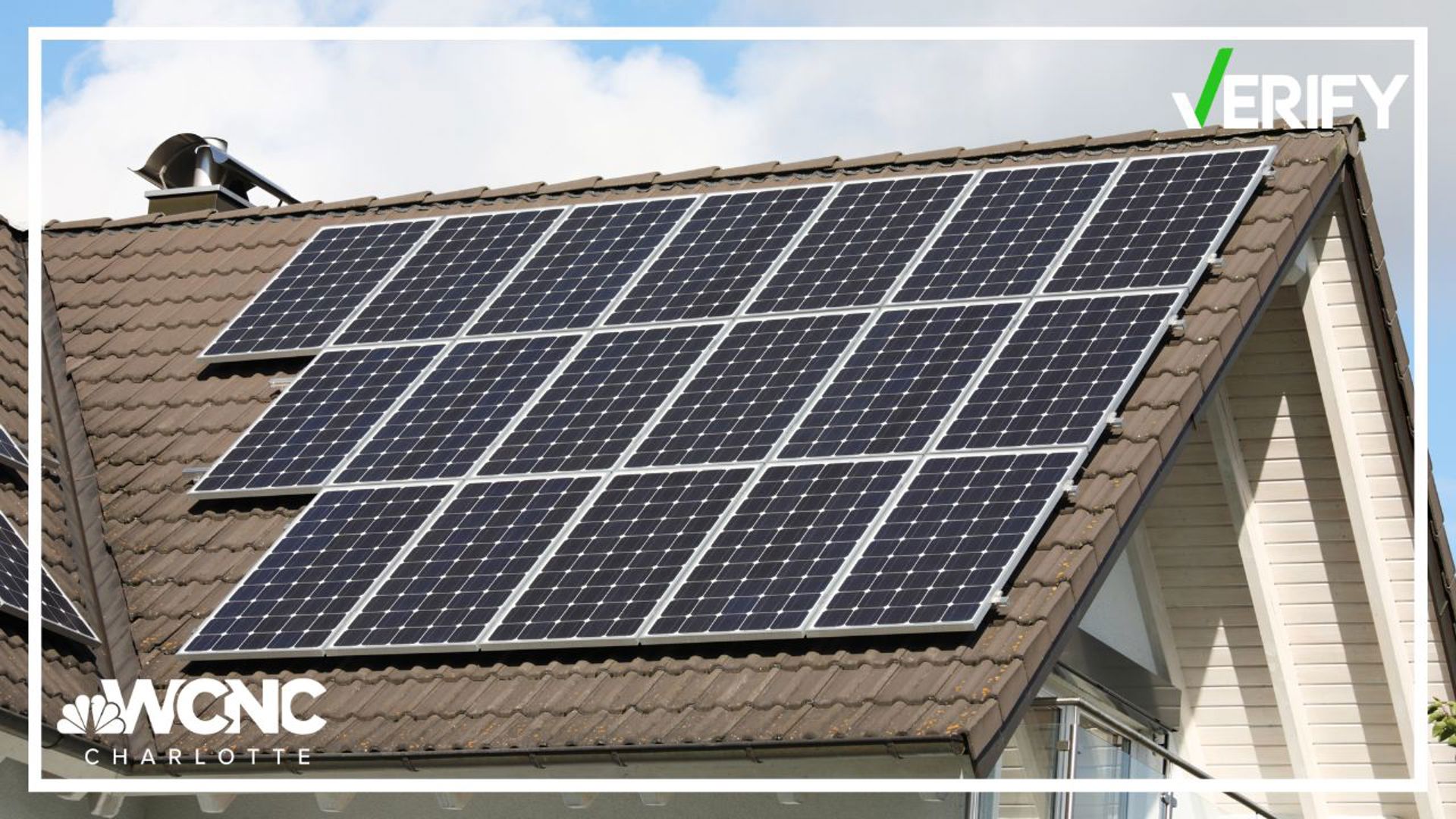CHARLOTTE, N.C. — More and more people are headed to renewable energy like solar panels to run their homes. However, there are concerns that solar panels may attract unwanted danger.
A VERIFY viewer shared a post from someone claiming to be a retired aerospace engineer. The poster claims that solar panels can help create thunderstorms and tornadoes. The lengthy post goes on to describe why some people believe solar panels could lead to bigger problems with the weather, but is it actually true?
THE QUESTION
Do solar panels attract lightning?
THE ANSWER
No, solar panels do not attract lightning.
OUR SOURCES
WHAT WE FOUND
Ebong said solar panels absorb sunlight which then, in turn, can create energy.
"A majority of a solar cell is made from silicon," Ebong said. "It absorbs electromagnetic waves with sunlight."
According to the Office of Energy Efficiency and Renewable Energy, 95% of solar panels sold are made of silicon, something Panovich said doesn't attract lightning.
"There really isn't something that would cause them to get hit by lightning," Panovich explained. "The only problem is they are on the roof and are attached to your electrical system, just like your starlight or cable."
Panovich said lightning occurs when ice crystals rub against each other, creating an electrical charge.
"A negative charge at the top, a positive charge at the bottom," Panovich said. "Those negatives and positives will attract and when they get close together, they will attach and all the discharge will come out of the ground."
Since lightning likes the path of least resistance, it's usually the tallest building, tree or object that gets struck. So if a solar panel is the tallest object in the area, it can get hit. But that doesn't mean solar panels attract lightning.
"It doesn't attract or get hit any more often than the roof," Panovich said.
Contact Meghan Bragg at mbragg@wcnc.com and follow her on Facebook, X and Instagram.
WCNC Charlotte's Verify series is all about trying to make a difference in the Carolinas by making sure the community has the correct information. WCNC Charlotte outlines concisely what we know and what we don't know. Sometimes the answer can be surprising. Watch previous stories where we verify social media claims in the YouTube playlist below and subscribe to get updated when new videos are uploaded.

